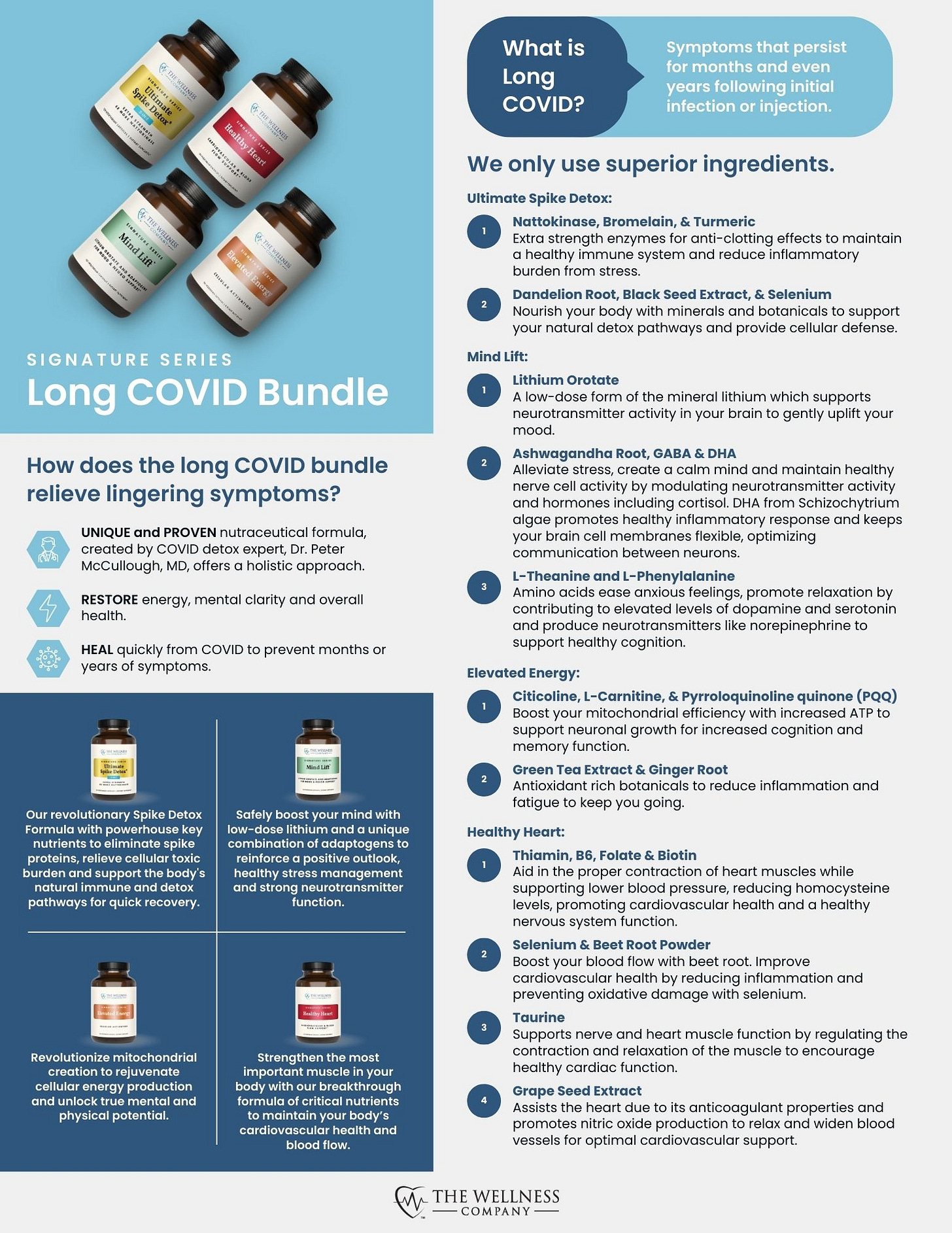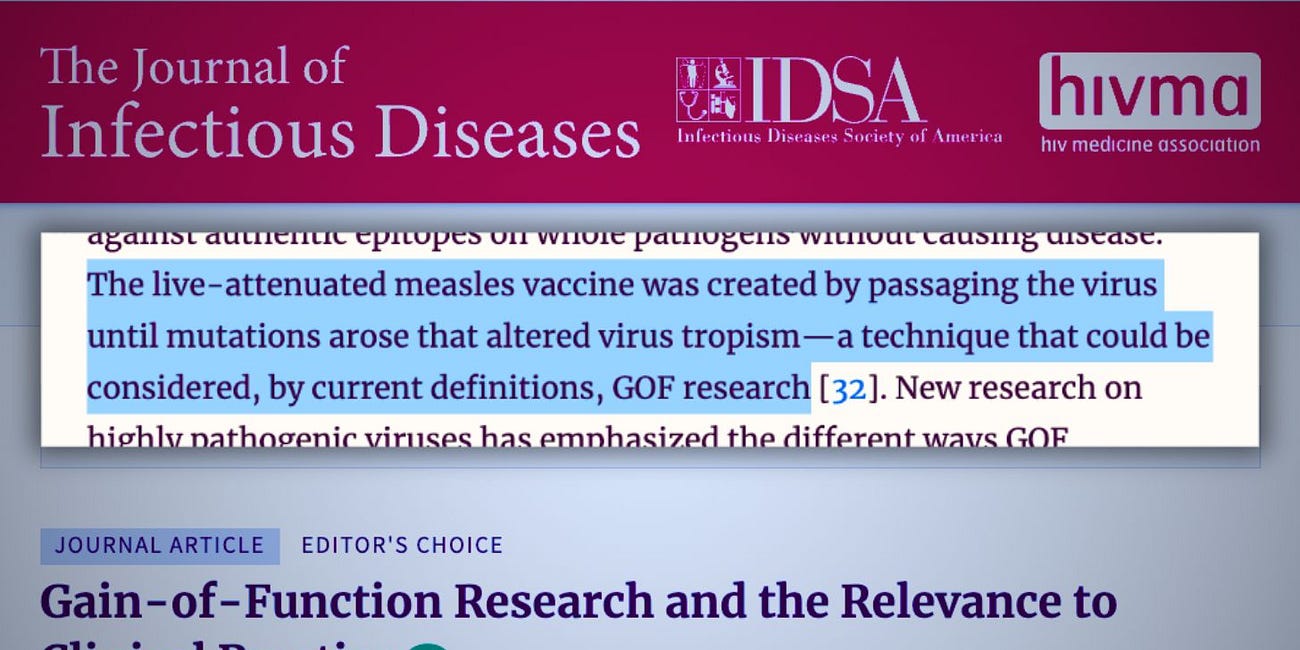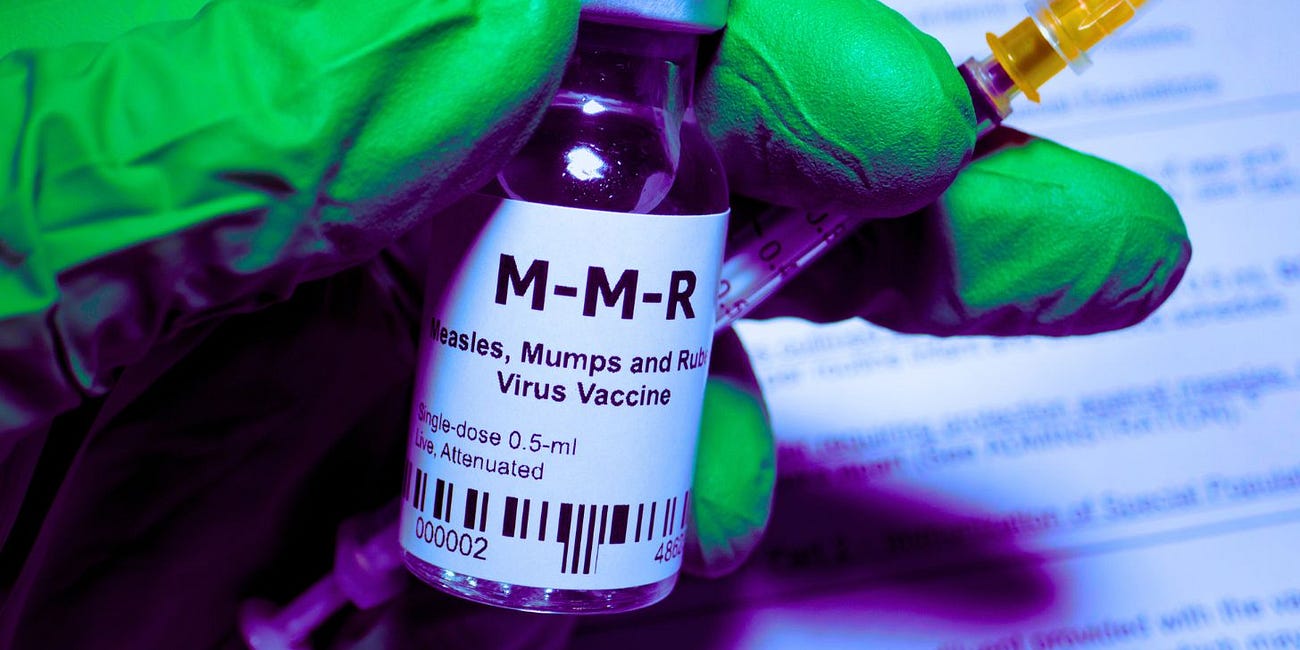Rand Paul's 'Risky Research Review Act' Targets Gain-of-Function, But Will Biden's Oversight Waiver Gut It Before It Starts?
Current GOF rules "lack sufficient government oversight, allowing American taxpayer dollars to be spent without proper safeguards," says press release.
On Wednesday, U.S. Senator Rand Paul (R-KY) reintroduced the Risky Research Review Act, a proposal to establish an independent Life Sciences Research Security Board within the Executive Branch to oversee the funding of gain-of-function research.
Follow Jon Fleetwood: Instagram @realjonfleetwood / Twitter @JonMFleetwood / Facebook @realjonfleetwood
The Risky Research Review Act’s reintroduction follows this website’s reporting (here) that the live virus in the measles (MMR) vaccine is the product of gain-of-function experiments.
Gain-of-function experiments are what led to the COVID-19 pandemic, whose virus and vaccine killed millions of Americans.
It is unclear how Sen. Paul’s proposed board would handle a new rule issued in May 2024 by Joe Biden’s Office of Science and Technology Policy (OSTP) that permits any department Secretary the power to waive oversight requirements for gain-of-function research.
If the waiver is granted, no one can see the dangerous experiments.
Set to take effect in May 2025, the waiver applies for up to 180 days, with the option for renewals, effectively allowing such risky research to bypass standard safety checks indefinitely.
Sen. Paul’s Life Sciences Research Security Board would keep an eye on “other high-risk life sciences research that potentially poses a threat to public health, safety, or national security,” according to a press release.
The group would be responsible for “thoroughly evaluating gain-of-function research and other potentially harmful studies involving high-consequence pathogens.”
But would the board be blocked from evaluating dangerous pathogen research if the OSTP waiver were invoked, rendering the Act useless?
The press release admits that the funding and study of life sciences research “lack sufficient government oversight, allowing American taxpayer dollars to be spent without proper safeguards.”
Sen. Paul’s legislation establishes a “much-needed stringent review process for the board to assess high-risk research and decide whether tax dollars should support specific research proposals, ensuring accountability and strengthening transparency.”
The Kentucky senator, who serves as Chairman of the Senate Homeland Security and Governmental Affairs Committee, stated:
“We must demand accountability for the grave oversights that were revealed by the COVID-19 pandemic. The safety of our nation and the trust in its institutions depend on it. My bill not only strengthens transparency but also ensures that public health decisions are made in the best interest of the American people, free from financial motives and prioritizing national security.”
Sen. Gary Peters (D-MI) is an original cosponsor of the legislation.
“Life science research can yield breakthroughs that help protect the health of Americans, but it must be done with proper safeguards in place,” said Sen. Peters, Ranking Member of the Senate Homeland Security and Governmental Affairs Committee. “By creating an independent oversight agency, this bill will help maintain control of high-risk research, to ensure it’s effective, innovative, and safe.”
Representative Morgan Griffith (R-VA), Chairman of the Energy and Commerce Committee’s Subcommittee on Environment, introduced the bill in the House of Representatives.
Rep. Griffith said:
“Gain-of-function research is reported to be a potential target of a future President Trump Executive Order. As someone who has extensively investigated COVID-19 origins and biosafety concerns in foreign labs, it is clear to me that greater oversight measures are needed to review gain-of-function research of concern and risky experiments that involve virus transmission in humans. The National Institutes of Health has proven they are not capable of properly reviewing risky research applications, as in the case of EcoHealth Alliance. I believe the Risky Research Review Act establishes crucial oversight measures to alleviate the legitimate and significant concerns of the American people, thus reestablishing trust in our public health agencies.”
Per the press release, the Risky Research Review Act will:
Establish an Independent Oversight Board: Form a Life Sciences Research Security Board dedicated to protecting public health, safety, and national security by evaluating and issuing binding determinations on high-risk life sciences research proposals seeking federal funding.
Define High-Risk Research: Specify high-risk life sciences research as studies with potential dangerous uses, or dual-use research of concern involving a high-consequence pathogen, or gain-of-function research.
Ensure Board Independence: Position the board as an independent agency within the Executive Branch, consisting of one executive director, five non-governmental scientists, two national security experts, and one non-governmental biosafety expert, each serving up to two four-year terms.
Restrict Funding Without Approval: Prohibit federal agencies from awarding funding for high-risk life sciences research without board approval.
Mandate Majority Vote: Require a majority vote of board members to approve high-risk life sciences research.
Empower the Board: Authorize the board to compel agencies to turn over necessary information and records, including classified information.
Demand Full Disclosure: Require life sciences research grant applicants to declare if their research falls under high-risk life sciences categories or involves select agents or toxins.
Automatic Referral: Mandate that all positive attestations are automatically referred to the board.
Continuous Subcontract Disclosure: Require grant recipients to continuously disclose subcontracts or subawards to agencies, with agencies required to submit these disclosures to the board.
Annual Reporting: The board will submit an annual report to the appropriate congressional committees and publish it online, summarizing determinations, findings, and information about entities and sub-awardees involved in high-risk life sciences research.
You can read the full bill here.
Whether Sen. Paul’s proposed board would have real teeth or simply serve as another layer of bureaucratic oversight remains to be seen—especially given the existing loopholes that already allow high-risk pathogen research to skirt regulation.
Follow Jon Fleetwood: Instagram @realjonfleetwood / Twitter @JonMFleetwood / Facebook @realjonfleetwood
Biden Policies for Gain-of-Function Experiments on Deadly Extinct Viruses Including Spanish Flu and Smallpox Effective 2025
The Biden administration has quietly introduced new rules, effective in 2025, that dramatically reduce government oversight on high-risk pathogen research, the same research the COVID-19 pandemic is said to have arisen from.
Measles Vaccine and Gain-of-Function: The Inconvenient Truth About CD150/CD46 Tropism Shift
Immediately after my Monday appearance on Children’s Health Defense (CHD), many criticized my explanation that the measles vaccine virus was developed through experiments that could be classified as gain-of-function (GOF) research.
Measles Vaccine Virus Is Product of Gain-of-Function Experiments Subject to Bioweapons Creation Rules: 'Journal of Infectious Diseases'
The development of the measles vaccine, long hailed by the mainstream as a triumph of medical science, has recently come under scrutiny due to its direct connection with gain-of-function (GOF) research.










Wonder if Trump knows pandemic stems from GOF at University of North Carolina RalphBaric? And that's why Biden's pardon of Fauci goes back to 2014?
GOF should be illegal
Thank you for sharing 💜🧬🙏🏼